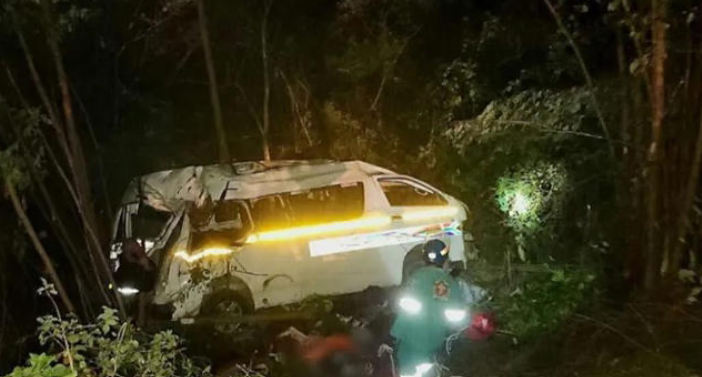Eight weeks later
By Khaya Sithole
Eight weeks later – Mr Jacob Zuma is still the President of the Republic. What has gone wrong?
Eight weeks ago, President Jacob Zuma ended his 10-year term as the President of the ANC. Since then, various observers and commentators have been engaged in a terminal war of speculation regarding his dismissal from the Union Buildings. This has been assisted by the ANC’s own leaders who have dropped various hints that a changing of the guard is imminent.
Through it all, President Jacob Zuma has stoically remained unmoved.
The leadership collective that emerged from the ANC National Conference at Nasrec is a motley crew of staunch Zuma allies plus the reformers preaching a message of renewal and tackling corruption. It is in this ideological divide within the top 6 where the leadership crisis has been amplified. Having been tasked by the National Executive Committee with ‘managing the transition’ or, in simple terms, convincing Jacob Zuma to vacate office, the ANC Top Six has been shocked into paralysis by their own inability to advance an argument that would convince President Zuma to step down. As a consequence of that, they have fumbled their lines in public and private and left us all with the lingering impression that the centre is not holding.
Through it all, my view has remained that the President should not vacate office in the manner that the ANC is attempting now. Firstly, the proponents of a recall have said that the presidency of Jacob Zuma in the Union Buildings and Cyril Ramaphosa et al at Luthuli House creates two centres of power in the country. This is presumably based on the impasse that existed 10 years ago when Thabo Mbeki led the country and Jacob Zuma led the ANC. However, what such an analysis omits is that in the case of Zuma and Mbeki, Zuma was not the Deputy President of the Republic at that stage and his relations with Thabo Mbeki had long ceased to exist. Cyril Ramaphosa, on the other hand, retains his position as the Deputy President of the Republic and leader of government business in Parliament. The process of working and coordinating with Zuma on matters of governance of the state is therefore not as impossible as it is imagined.
Secondly, the Zuma impasse has served as an important lesson for the ANC and the country about the structural design of the political and governance architecture we signed up for. In the ANC’s view, as President Jacob Zuma is a deployee of the party the party should be able to simply recall him whenever it deems it fit to do so. What is missing in that view is the reality that all deployees are created equal – with the exception of the deployee that becomes the state president.
Unlike other deployees whose endorsement can be withdrawn through a simple process of the ANC amending its parliamentary list, for example, the president of the country assumes unique constitutional powers once he is elected to the National Assembly. More crucially, the President ceases to be an MP once inaugurated. This makes it impossible for the ANC to facilitate a withdrawal through simply amending its parliamentary list as his name is no longer part of that list. The ANC’s hard lesson has been that the NEC recall process is a political tool that has no legal or constitutional standing as far as the President is concerned. Having invoked the NEC process to recall Thabo Mbeki 10 years ago there was an expectation that it could be used again. But this expectation belied the reality that President Zuma has much more to lose from leaving office than Thabo Mbeki had. This makes the idea of a voluntary resignation from Zuma very unlikely.
Lastly, one has to consider that ideal long-term solution in this case. The governance paralysis that is eroding the ANC’s credibility as a governing party stretches far beyond the actions of just Jacob Zuma. It is a paralysis that is replicated through various cabinet appointments whose performance is far from ideal. In a resignation of just Jacob Zuma, Cyril Ramaphosa will inherit the same cabinet that is currently in place with the only guaranteed shuffle coming in the position of Deputy President. For the remaining cabinet positions, he would then have to apply his mind to each post and decide whether to retain or dismiss particular cabinet ministers. This will not be an easy task as there are bound to be casualties which then creates a sense of resentment for the affected politicians.
In a parliamentary process, however, if a motion of no confidence is passed then the entire cabinet is summarily dissolved. Whilst this sounds more disruptive than a mere recall of or resignation from Jacob Zuma, it does present Ramaphosa with a unique ability to start from a clean slate and not be seen to have selectively purged ministers from the current cabinet. And for a man who is so committed to a phase of renewal for the ANC, it surely doesn’t get better than that?
Ten years ago, it took the ANC eight days in September to persuade Thabo Mbeki his time was up. It’s been eight weeks since Jacob Zuma became the prime reshuffle target for the Ramaphosa administration. Eight weeks of patience and confusion. This week’s NEC meeting needs to bring this matter to finality. Eight more weeks of this deadlock would be an absolute disaster for Cyril Ramaphosa.

Khaya Sithole is Kaya 959’s resident political analyst. He’s also the co-host of Thethani, Kaya 959’s weekend current affairs show — catch him, along with Portia Kuboe, on air on Sunday nights between 10 and 12 PM.
Written by: Kayafm Digital
ANC NEC ANC NEC 2017 Cyril Ramaphosa jacob zuma khaya sithole parliament Zuma
Similar posts
MORE ARTICLES

In Pictures: Mzansi Celebs serve style and drama at Durban July 2025

Five killed in KZN crash allegedly caused by Polo driver

From Benin to the world: Kidjo makes history as first black African on Hollywood Walk of Fame

Drama, cheating and Surprise guest: RHOD reunion delivers shocking revelations

Why Waterfall Estate’s 99-year lease is practically forever
QUICK LINKS
UpComing Shows

Touch of Soul
With T Bose
Kaya 959 takes back Sundays with A Touch of Soul, the only show bringing you soul and RnB music that touches your mind, body and spirit. The Best T in the City, T-bose takes you back to a time when music was made to last. A Touch of Soul is the perfect wind-down to your weekend. Sundays 14h00 to 18h00.
close
The Jazz Standard
with Brenda Sisane
The Jazz Standard with Brenda Sisane. Sunday's 12:00-15:00.
close
Spade of Hearts
With Xola Dlwati
WITH XOLA DLWATI: SATURDAYS 12:00 -15:00 Spade of Hearts is a fuse of love and soulful sounds, pulling at your heartstrings. Tune in for songs that will take you down memory lane. It is the sound that once dominated your playlist. It airs Sundays 12:00 – 15:00.
close
The World Show
With Nicky B
The World Show is informative, expansive, and largely pan-African. This is a musical journey that bridges generations and genres, travelling across continents and timelines, with in-depth interviews and features. ‘The World Show’ is a four-hour global journey through sound – featuring the freshest tracks from home and afar.
close
959 Music Weekdays
Kaya 959 Hits
Real. Familiar. Memorable. Kaya 959 brings you the music you know and love from our playlist. Uninterrupted. Thursdays 20h00 to 21h00
closeConnect with Kaya 959
DownLoad Our Mobile App
© 2025 Kaya 959 | On The Street On The Air









